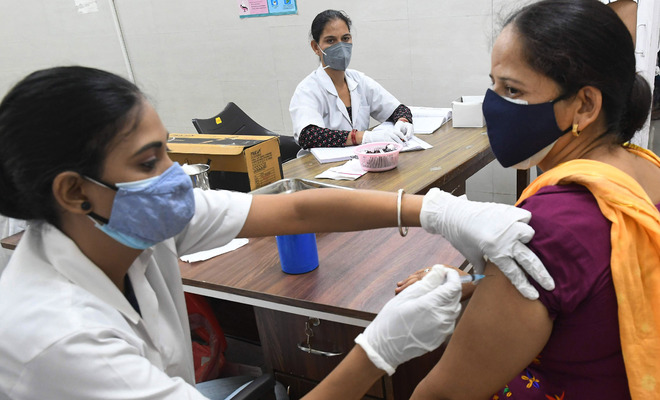Naina Mishra
Tribune Information Solution
Chandigarh, June 9
The very transmissible Delta variation or B. 1.6172 has actually spread its arms in Chandigarh and also Punjab, according to genomic characterisation research study performed by researchers from the National Centre for Illness Control and also CSIR, Delhi.
The research study– Genomic Characterisation and also Public Health of a Surfacing SARS-CoV-2 Alternative in Delhi– has actually shown up in pre-print web server and also is yet to be peer-reviewed.
The researchers researched the primary family trees of SARS CoV-2 in north India and also discovered frequency of the Delta variation in Chandigarh, Himachal Pradesh, Punjab, Leh, Jammu and also Kashmir and also Uttarakhand. The Delta variation was reported to be the huge rise in situations in these locations in April.
Genomic monitoring information from Delhi and also bordering states additionally reveals a very early stage of the boom driven by the access of the even more transmissible B. 1.1.7 (Alpha variation– initial discovered in the UK) right into the area in January.
This was complied with by seeding of the B. 1.617 variation of issue– which as well is very transmissible– with quick development of B. 1.6172 sub-lineage outmatching all various other family trees.
The B. 1.6172 variation has greater transmissibility than the Alpha variation in north India, also in Punjab, where B. 1.1.7 had actually gotten to near to 100 percent frequency, exposes the most up to date research study.
According to the researchers, the April break out in Delhi was come before by episodes in the states of Kerala, Maharashtra and also Punjab. The break out in Punjab has actually been associated with the intro of B. 1.1.7 (Alpha variation).
The researchers have actually discovered a solid link in between Delhi and also Punjab, relative to, B. 1.1.7 variation.
The B. 1.1.7 (Alpha variation) break out in Punjab explains at a super-spreader occasion like mass public events and also rallies kept in various components of north India considering that January 2021, and also highlights the crucial function of social consider SARS-CoV-2 episodes.
The researchers discovered the very same pattern in Punjab and also Delhi with preliminary seeding of Alpha variation in between February and also March changed by B. 1.6172 (Delta variation) in April 2021.
The research study discovered that the rise of SARS-CoV2 infections in Delhi and also neighboring states was finest described by the intro of a brand-new very transmissible VOC– B. 1.6172 (Delta variation)– with most likely immune-evasion buildings, not enough neutralising resistance and also social actions that advertised transmission.
The B. 1.617 variation was initial discovered in India and also was separated right into 3 family trees– B. 1.6171, B. 1.6172, and also B. 1.6173.
The Globe Wellness Organisation (THAT) has actually claimed just B. 1.6172, among the 3 stress of the B. 1.617 Covid-19 variation was initial discovered in India.
The variation has actually currently infected over 63 nations and also is thought to be 50 percent much more transmissible than Alpha.
